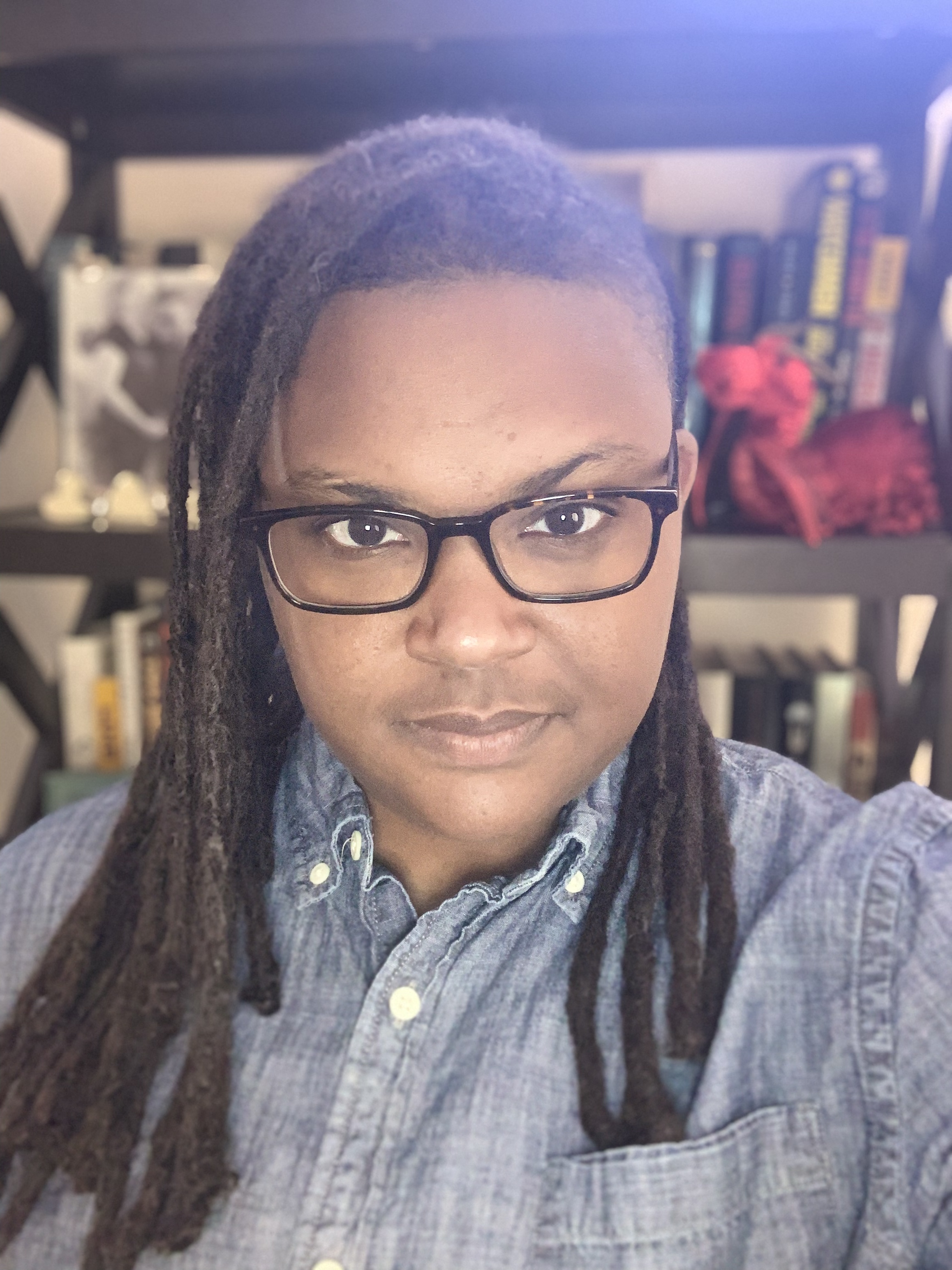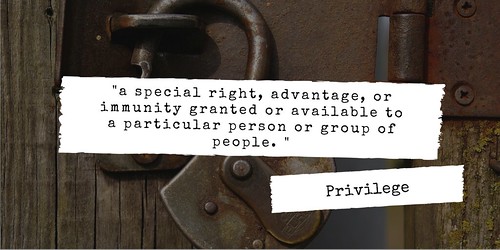 I almost didn’t write a Monday Musings post today. I thought that I didn’t have anything of interest to talk about. And then I went through and read people’s responses to this week’s Book Blogger Hop question.
I almost didn’t write a Monday Musings post today. I thought that I didn’t have anything of interest to talk about. And then I went through and read people’s responses to this week’s Book Blogger Hop question.
I found myself getting angry.
This anger wasn’t directed at specific people—though I did find I had a difficult time leaving comments, and opted not to leave comments in many cases—but instead at what was absent from the conversation as a whole. Privilege.
I used a dirty word, didn’t I? Here. Let me say it again.
Privilege.
I hope you haven’t stopped reading because here’s the thing: I am a black queer American and I have privilege. I am well- (and some would say over-) educated. And I’ve managed to become this well educated without taking out student loans. All of my limbs work the way they’re supposed to, and while I have some anxiety issues, I also am surrounded by people who are supportive (I imagine this is in part because I’m married to a psychologist and many of our friends are also psychologists). These are not all of my points of privilege, but hopefully that gives you some idea.
I say all of that so no one hears me say that I don’t have privilege, because that’s not true in the slightest.
What I am saying, though, is one’s ability to just read preferred genres and not go out of the way to find diversity is a point of privilege. It’s important, in conversations like these, to acknowledge that the things we say come from a place of privilege. I use “we” on purpose. So don’t get it twisted, I include myself in this conversation.
Lately, I’ve tended toward reading books with either the black American experience represented, or the LGBTQ+ experience represented. That I don’t have to work very hard to find these books because I’m privileged enough to have a librarian who will order things for me, or a partner who is really into Octavia Butler, or access to a large digital collection, or the money to buy books, is part of this conversation.
Stay with me, I have two points to make.
First point addresses the comments I saw about not wanting to put in the effort to find/read books that are written by diverse peoples or contain diverse characters.
Let me put it to you this way. You are free to make choices. And while I’m not passing judgment, I’d like to share with you what it would look like for me as a reader to say the same thing. I’ll use the majority of my education as an example. As a student, from grades 6-12, I remember reading one book that featured a protagonist who wasn’t part of the majority culture. Whose values am I being taught, as a teenager?
Not only that, but if I wanted to read something with a protagonist that mirrored my experience, I had to put in the effort. I had to go research. I had to go talk to people to find out (because this was before blogging was even a thing). And that was just to see myself represented. Not having to think about these things, not having to put forth the effort to find oneself represented in these texts? Privilege.
I actually appreciated the person who said they didn’t read diversely because they didn’t want to rather than hemming and hawing around the question. I know exactly where they stand.
Second point. Let me give it to you in an anecdote.
For three years, I taught a master’s level course on the theory and pedagogy behind using young adult literature in the classroom. When developing my syllabus, I drew from the syllabi of the professor who taught it before me. Each week required students to read a different book that provided space for the teaching of a number of different standards. Because I wanted my students’ reading to be representative of who they are and who their students were/would be, one of the texts I included the second and third years I taught the class was I Am J by Cris Beam, which follows a trans boy as he comes out.
A student of mine, after she read the book, posted about how, before reading, she didn’t want to read a book about a trans kid. But as she read, she noticed that while his experiences were different from hers, there were aspects of his life that she could identify with. And she made a point to comment on it.
I say all that to say this: reading books with diverse characters isn’t just about reading books with diverse characters. It’s about finding the similarities in human experience through the differences in human experience. I have problems when people say they can see themselves reflected in the Oankali, but they can’t find any point of connection with someone who is brown, or someone who has a mental illness, etc.
The mirror’s great, but we’ve got to look out the window now and then. Doors are even better.
Other things I’ve mused about on Mondays…


